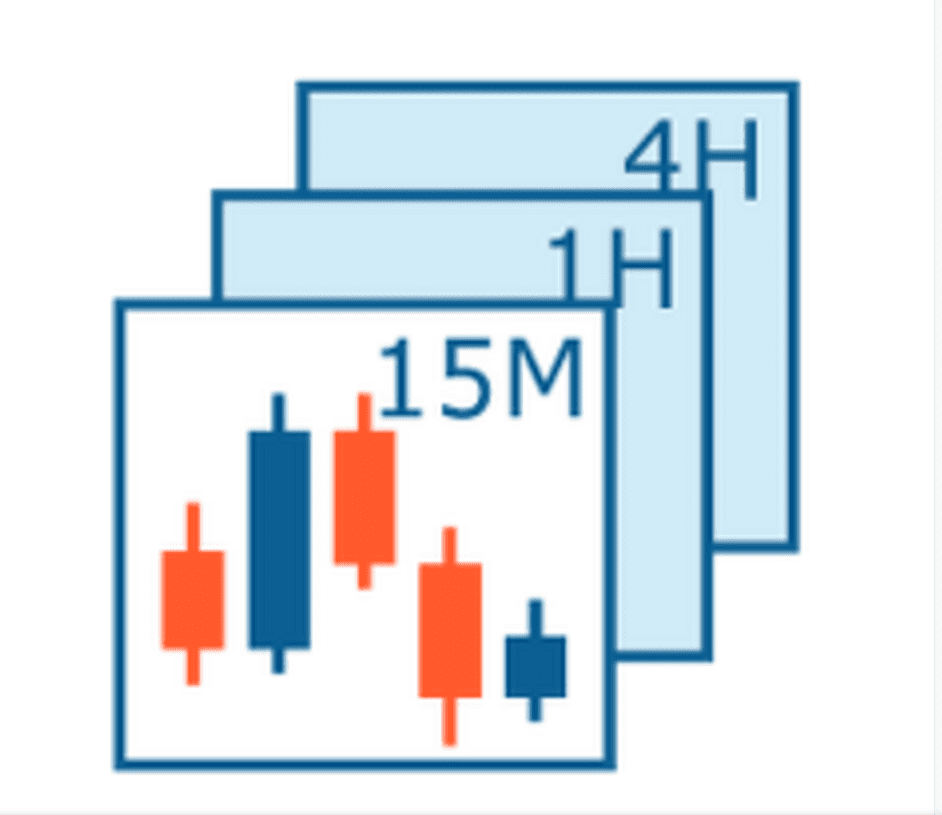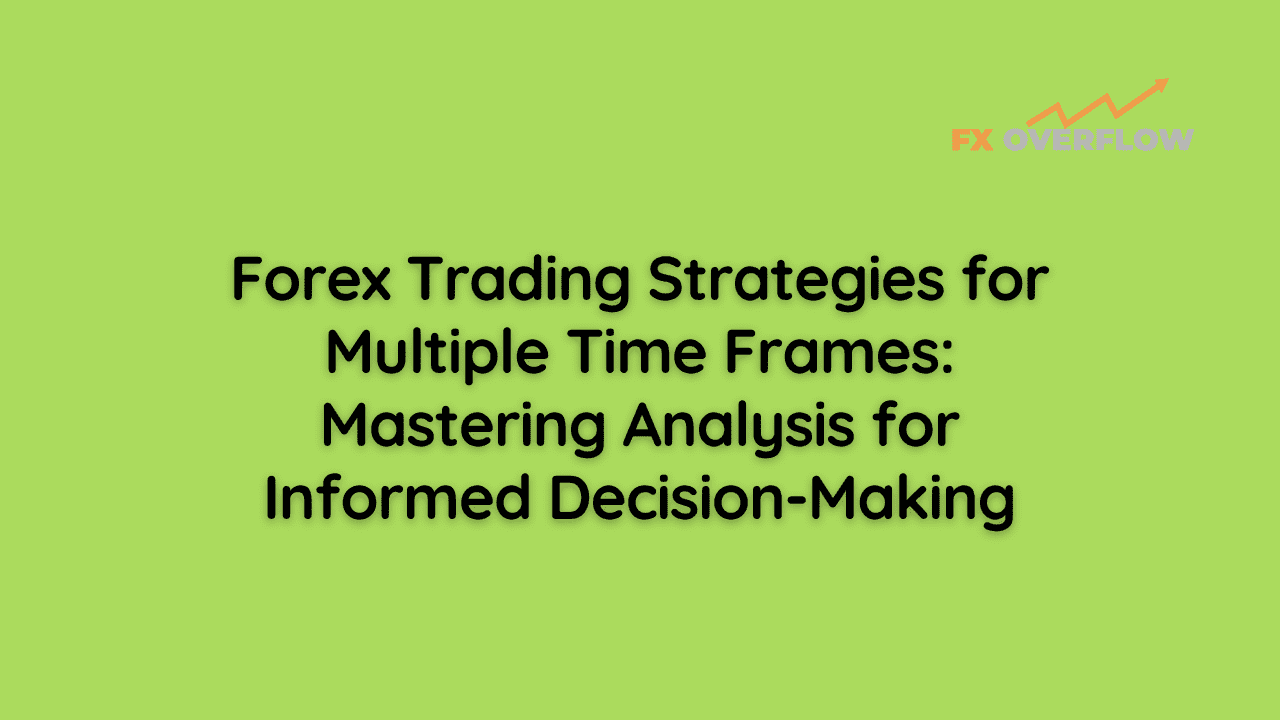Forex Trading Strategies for Multiple Time Frames: Mastering Analysis for Informed Decision-Making
In the dynamic world of forex trading, making informed decisions is paramount. The use of multiple time frames in forex analysis has emerged as a powerful strategy to enhance decision-making. This article delves into the significance of utilizing analysis on different time frames and explores how it can be effectively integrated into forex trading strategies.

Table Content
1. The Essence of Time Frame Analysis
2. Integrating Multiple Time Frames into Your Strategy
3. Challenges and Considerations
4. Footnote
5. Frequently Asked Questions
The Essence of Time Frame Analysis
i) Understanding Different Time Frames
When it comes to forex trading, different time frames offer distinct perspectives on market trends and price movements. Shorter time frames, like the 5-minute or 15-minute charts, provide insights into intraday volatility and rapid price changes. On the other hand, longer time frames, such as the daily or weekly charts, offer a broader view of overall market trends and major price shifts. By analyzing various time frames, traders gain a comprehensive understanding of both short-term fluctuations and long-term patterns.
ii) Synthesizing Information for Informed Decisions
The key to successful forex trading lies in effectively synthesizing information from multiple time frames. Traders can identify trends in the longer time frames and use them to align their trades with the prevailing market direction. Simultaneously, they can fine-tune their entries and exits using insights from shorter time frames. This strategic approach minimizes the risk of making impulsive decisions based on isolated market movements.
Integrating Multiple Time Frames into Your Strategy
a) Building a Solid Foundation
Before integrating multiple time frames into your strategy, it's essential to have a solid foundation in technical analysis. This includes understanding indicators, chart patterns, and trend lines. With this knowledge, traders can accurately interpret signals across various time frames and make well-informed decisions.
b) Identifying Confluence Zones
Confluence zones, where signals from different time frames align, are particularly powerful areas for trading decisions. When indicators, patterns, or support/resistance levels coincide across multiple time frames, it strengthens the conviction behind a trade. Traders can enter or exit positions with greater confidence, knowing that multiple analyses point in the same direction.
Challenges and Considerations
i) Overcoming Analysis Paralysis
While multiple time frame analysis offers valuable insights, overanalyzing can lead to analysis paralysis. Traders must strike a balance between thorough analysis and decisive action. It's important to have a predefined trading plan that outlines the criteria for entering and exiting trades based on the combined information from different time frames.
ii) Adapting to Changing Market Conditions
Market conditions can change swiftly, impacting trends across various time frames. Traders need to be adaptable and prepared to reassess their strategies based on evolving market dynamics. Regularly reviewing and adjusting your approach ensures that your trading strategy remains aligned with the current market environment.
Footnote
Incorporating analysis from multiple time frames is a dynamic approach that enhances forex trading decisions. By gaining insights from both short-term and long-term perspectives, traders can make more informed and strategic choices. Remember, successful forex trading is not solely about predicting prices; it's about understanding market behavior and reacting intelligently. So, whether you're a novice or experienced trader, consider leveraging the power of multiple time frame analysis to elevate your trading game.
Frequently Asked Questions
Q1: What are the benefits of using multiple time frame analysis in forex trading?
A: Multiple time frame analysis provides a comprehensive view of market trends, enabling traders to align their trades with both short-term fluctuations and long-term patterns.
Q2: How can I avoid overanalyzing the market using multiple time frames?
A: To avoid overanalysis, create a well-defined trading plan that outlines specific criteria for entering and exiting trades based on combined time frame analyses.
Q3: Can I use multiple time frame analysis in conjunction with other trading strategies?
A: Yes, multiple time frame analysis can be integrated with various trading strategies, enhancing the overall accuracy of trade decisions.
Q4: Is there an ideal combination of time frames to analyze?
A: The ideal combination depends on your trading style and goals. Common combinations include daily and hourly charts or 4-hour and 15-minute charts.
Q5: How often should I review and adjust my trading strategy based on multiple time frame analysis?
A: Regular reviews are crucial to adapt to changing market conditions. Consider conducting weekly assessments to ensure your strategy remains effective.











Discussion